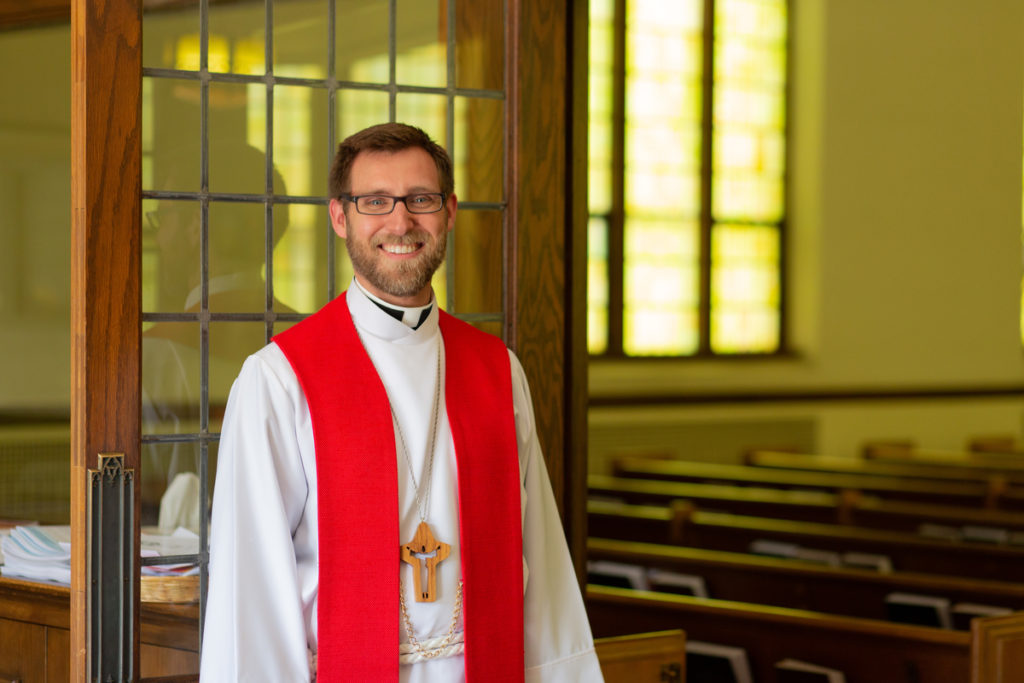Director’s Note: Spencer Wentland is uniquely qualified to write this article analyzing the ELCA’s concept of global mission as accompaniment rather than evangelism – as responding to requests for help from indigenous churches rather than being concerned to share the message of Jesus with unreached peoples. Spencer is a member of our young adult group, which meets via zoom about once a month for fellowship and support. He is passionate about reaching people who do not know Jesus. He has much international experience, including studying and serving in a discipleship community in Denmark. He has served as an ELCA lay missionary in Japan and has written on the theology of global mission of different Christian groups.
The ELCA defines accompaniment as “…walking together in a solidarity that practices interdependence and mutuality[*]” (Global Mission, emphasis in original). Although often portrayed as a biblical theology coming out of the disciples’ encounter with Jesus on the road to Emmaus, it is strongly influenced by and rooted in liberation theology[†]. My immediate concern with it, as a heuristic to the what and where of mission, is that it is antithetical to the Pauline priority on unreached places.
The Apostle Paul emphasized not building on another’s foundation but to establish the Church where it does not exist. Combined with Jesus’ teaching that the Gospel must be preached in all nations (Gk. ethnos, often understood as ethno-linguistic people groups by many missiologists) and then the end will come, there has been a strong emphasis on sending missionaries to work amongst unreached and unengaged people groups[‡].
While working as an ELCA missionary, I heard about experienced mission personnel being sent home while the Japanese Evangelical Lutheran Church was told how they were going to become less dependent on the ELCA. In the name of being post-colonial, it was an ironically patronizing execution of implementing an accompaniment model.
Accompaniment is actually very good in shaping how we do mission. We should not ignore the presence and work of indigenous Lutherans. If consistent with the values of accompaniment, it’s a good way to think about working together in the larger context of God’s mission. It reminds us that the task of mission must be informed by the catholicity of the Church as well as its apostolic nature. It also informs us to do mission in the pattern and practice of Christ himself who is Immanuel.
The problems with accompaniment are when it determines what the content of mission is and where it is done. When applied to the what of mission, it frames the whole task into a ministry of presence. This collapses into the problem that when everything is mission, nothing is mission. The primary task of establishing the Church in unreached places, making disciples and evangelical mission is diminished into almost oblivion by tasks being determined by the partner denomination. True accompaniment would involve both churches determining the content of mission work in the light of both Scripture and context. Working together is key, not completely abrogating task criteria to the partner church.
The ELCA’s requirement that pre-existing Lutheran churches request the ELCA to send missionaries (an effort in being post-colonial) assures that no missionaries will ever be sent to unengaged people groups. The Japanese are the second largest unreached people group, so there is an odd and good anomaly that work is going on there. During my missionary orientation, I asked if someone had a vision like Paul of a man from Macedonia, saying come here, would that qualify a call (Acts 16)? Is the Holy Spirit leading with the Word, or are we reducing the idea of being spirit-led to a democratized principle of the external call coming through partner churches?
In conclusion, accompaniment is a mixed bag. It’s great for the how of mission, and it is a true gift. However, it needs to be understood in the larger context of the ELCA’s constitution and statement of faith, including its responsibility to work for the fulfillment of the Great Commission. To do this, the primary tasks need to be strategic partnership for the purposes of mission development/evangelical mission and a willingness to send people to places where no Christians, let alone Lutherans, exist.
Photograph courtesy of Spencer Wentland; it is of a protestant church in Okinawa.
[*] “Global Mission.” Elca.Org. Evangelical Lutheran Church in America, Accessed November 5, 2023. https://www.elca.org/Our-Work/Global-Mission.
[†] ORDÓÑEZ, CLAUDIA. “Public Health Needs Liberation Theology.” Aquinas Emory Thinks. Aquinas Center at Candler School of Theology, February 15, 2021. https://aquinasemorythinks.com/public-health-needs-liberation-theology/.
[‡] Unreached: relative to the population living near a gospel witness. Imagine an American city of about 250,000 people and if there is only about three or four churches of twenty people and no youth groups. Unengaged: has any effort been made by Christians to bring the Gospel and make disciples among this particular people group?




















